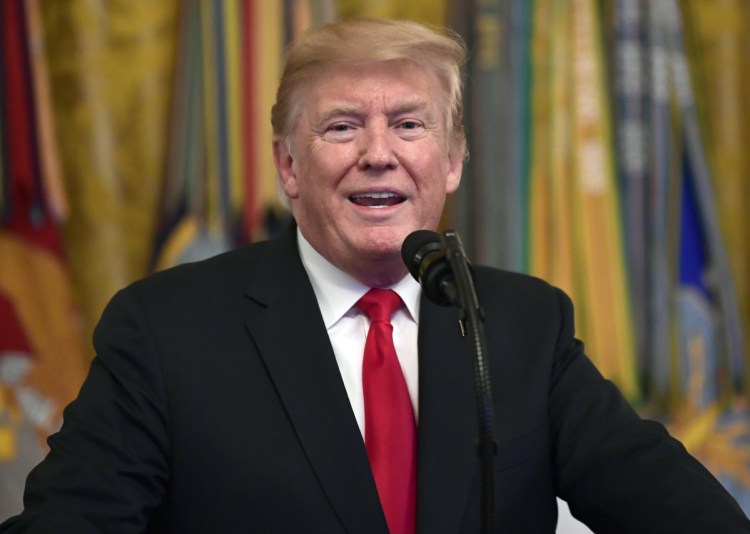WASHINGTON — The prognosis for President Trump and his party was grim.
In a post-Labor Day briefing at the White House, a top Republican pollster told senior staff that the determining factor in the election wouldn’t be the improving economy or the steady increase in job creation. It would be how voters feel about Trump.
And the majority of the electorate, including a sizeable percentage of Republican-leaning voters, doesn’t feel good about the president, according to a presentation from pollster Neil Newhouse that spanned dozens of pages.
Newhouse’s briefing came amid a darkening mood among Republican officials as the November election nears. Party leaders were already worried that a surge in enthusiasm among Democrats and disdain for Trump by moderate Republicans would put the House out of reach.
But some Republicans now fear their Senate majority is also in peril – a scenario that was unthinkable a few months ago given the favorable Senate map for the party.
“For Republican candidates to win in swing states, they need all of the voters who support President Trump, plus a chunk of those who do not,” said Whit Ayres, a Republican pollster. “That is threading a very narrow strategic needle.”
Operatives in both parties say Republicans still have the edge in the fight for control of the Senate.
But Republican officials are increasingly worried that nominees in conservative-leaning states like Missouri and Indiana are underperforming, while races in Tennessee and Texas that should be slam-dunks for Republicans are close.
Senate Majority Leader Mitch McConnell raised an alarm last week, warning that each of the competitive Senate races would be “like a knife fight in an alley.”
Some of the public fretting among Republicans appears to be strategic, as party officials try to motivate both voters and donors.
Many moderate Republican voters “don’t believe there is anything at stake in this election,” according to the documents Newhouse presented to White House officials. He attributed that belief in part to a disregard for public polling, given that most surveys showed Democrat Hillary Clinton defeating Trump in the 2016 presidential election.
Newhouse and the White House would not comment on the early September meeting. The Associated Press obtained a copy of Newhouse’s presentation, and two Republicans with knowledge of the briefing discussed the details on the condition of anonymity.
The paradox for Republicans is that most Americans are largely satisfied with the economy, according to numerous surveys.
But the party has struggled to keep the economy centered at the center of the election debate.
Trump keeps thrusting other issues to the forefront, including his frustration with special counsel Robert Mueller’s investigation, and his intense anger with unflattering portrayals of his presidency in a book by journalist Bob Woodward and an anonymous editorial from a senior administration official that was published in the New York Times.
Trump also stunned some backers last week when he disputed the death toll in Puerto Rico from last year’s Hurricane Maria, just as another storm was barreling toward the East Coast.
Newhouse told White House officials that Trump could appeal to moderates and independents by emphasizing that a Democratic majority would be outside the mainstream on issues like abolishing U.S. Immigration and Customs Enforcement and government-funded health care. Other Republican strategists have offered candidates similar advice.
Karl Rove, who served as chief political strategist to President George W. Bush, said that if Republicans cast their Democratic rivals as soft on immigration or in favor of high-dollar government spending on health care, “that’s a toxic mix to the soft Republicans and Republican-leaning independents.”
Send questions/comments to the editors.



Success. Please wait for the page to reload. If the page does not reload within 5 seconds, please refresh the page.
Enter your email and password to access comments.
Hi, to comment on stories you must . This profile is in addition to your subscription and website login.
Already have a commenting profile? .
Invalid username/password.
Please check your email to confirm and complete your registration.
Only subscribers are eligible to post comments. Please subscribe or login first for digital access. Here’s why.
Use the form below to reset your password. When you've submitted your account email, we will send an email with a reset code.